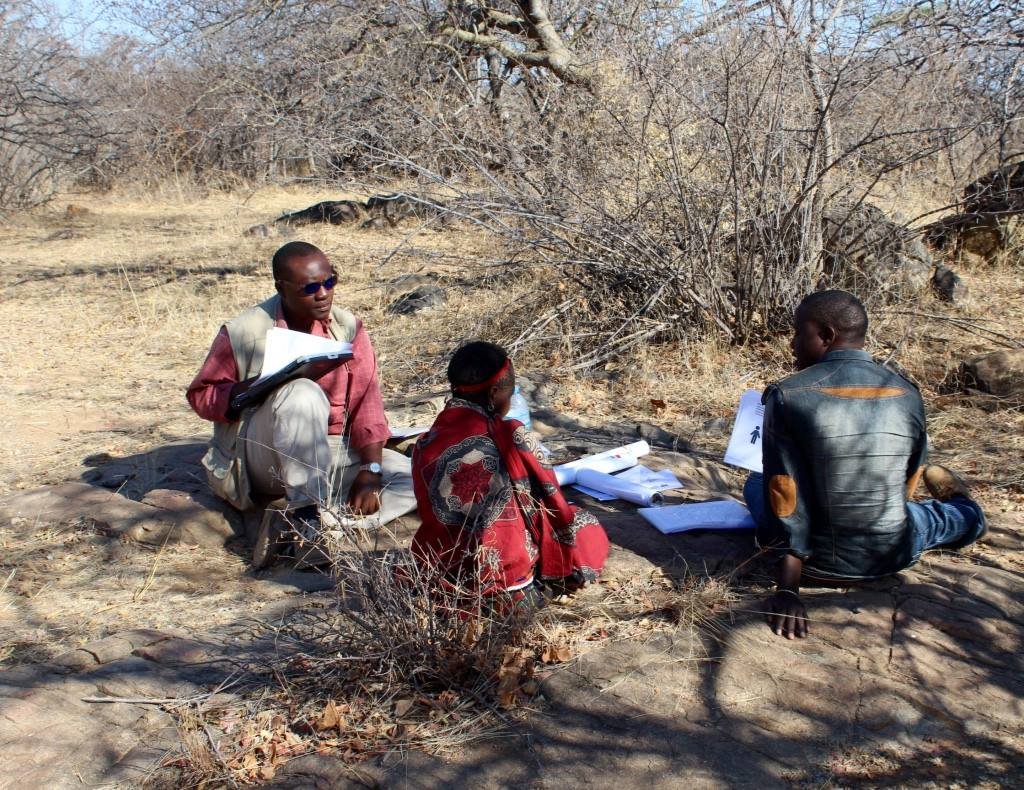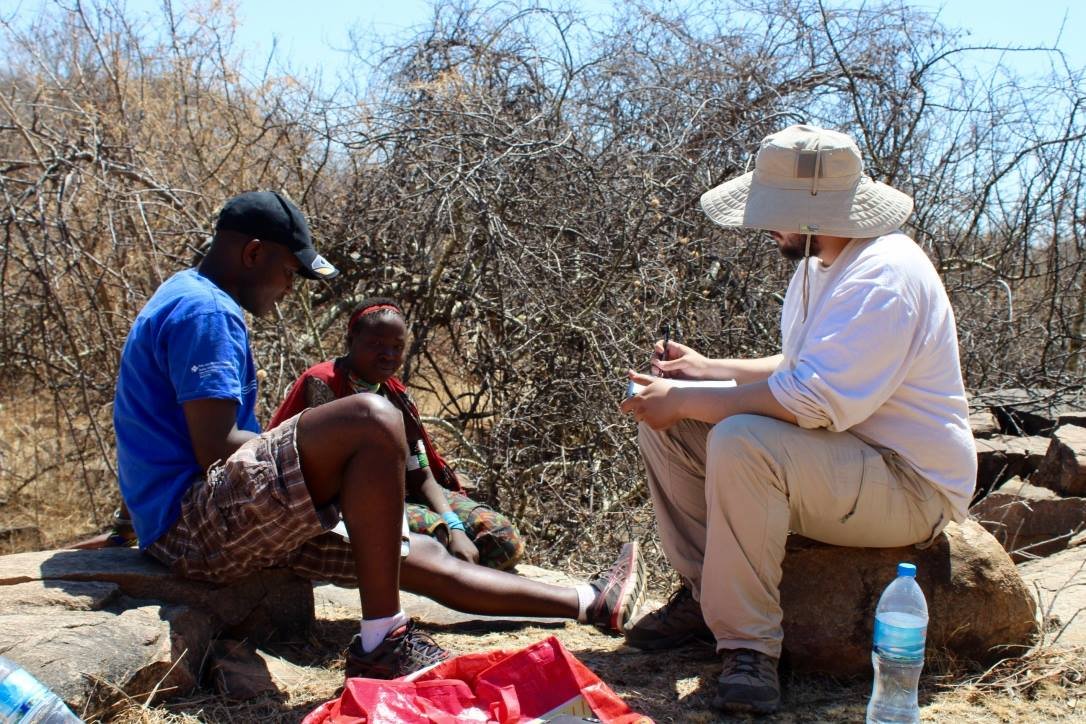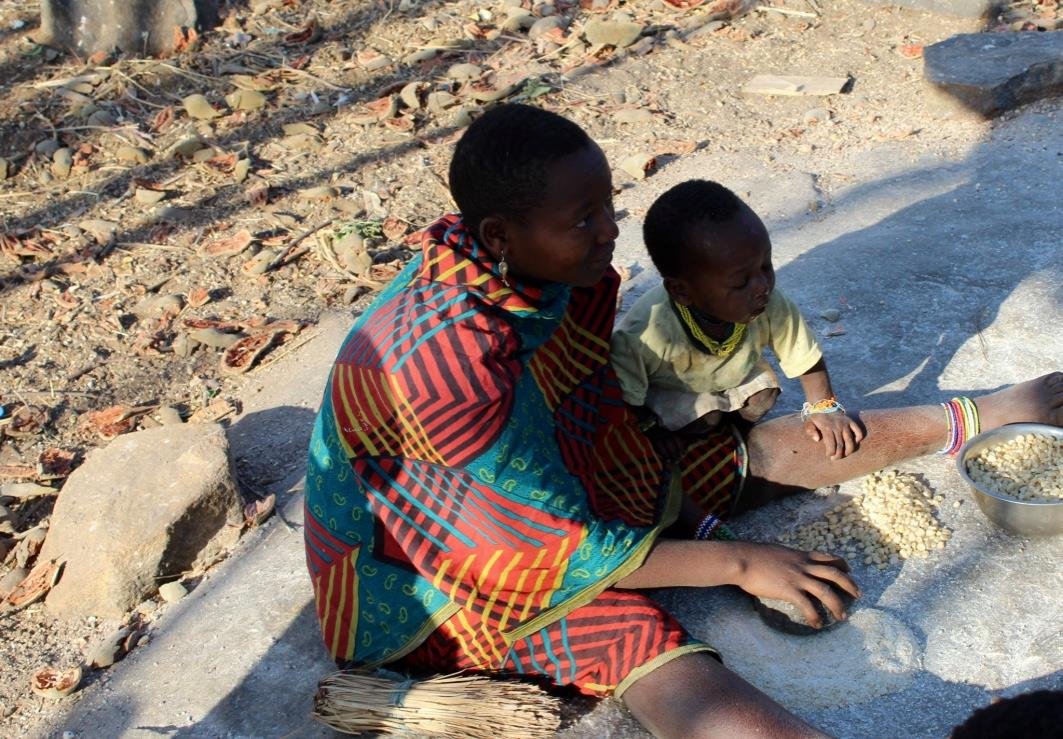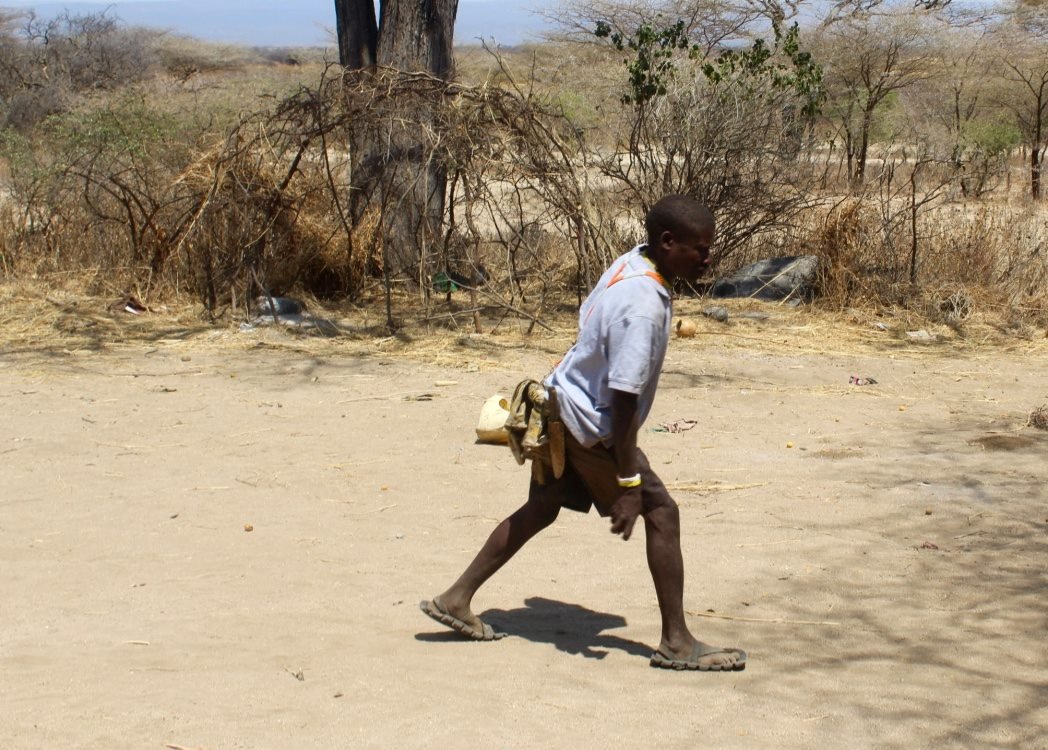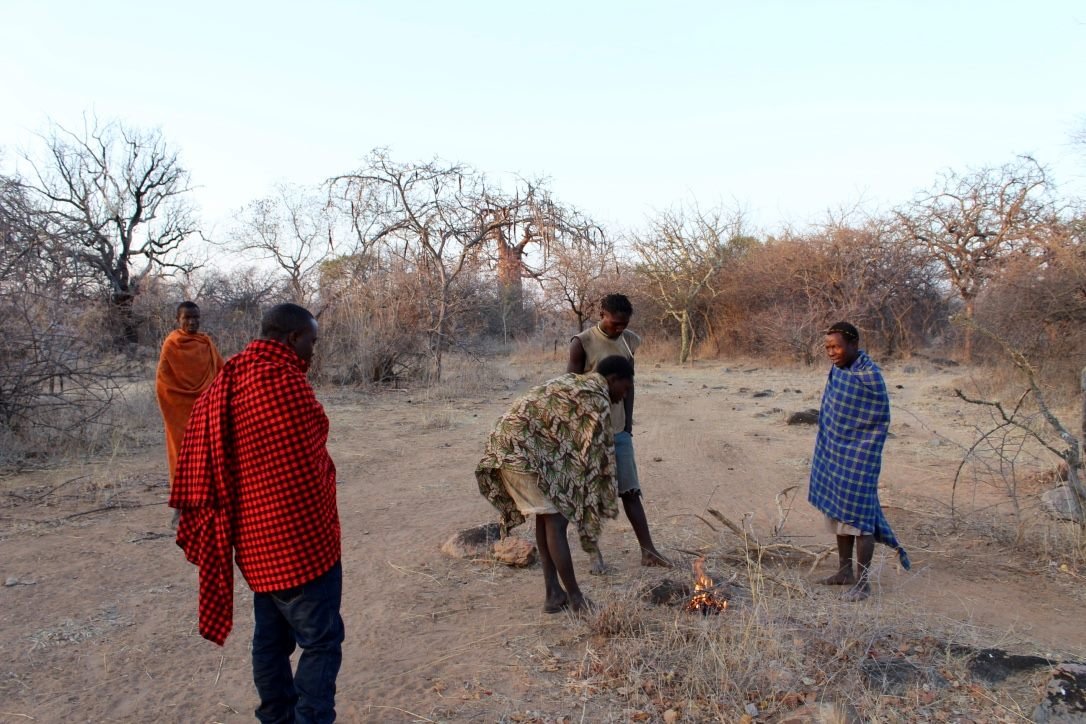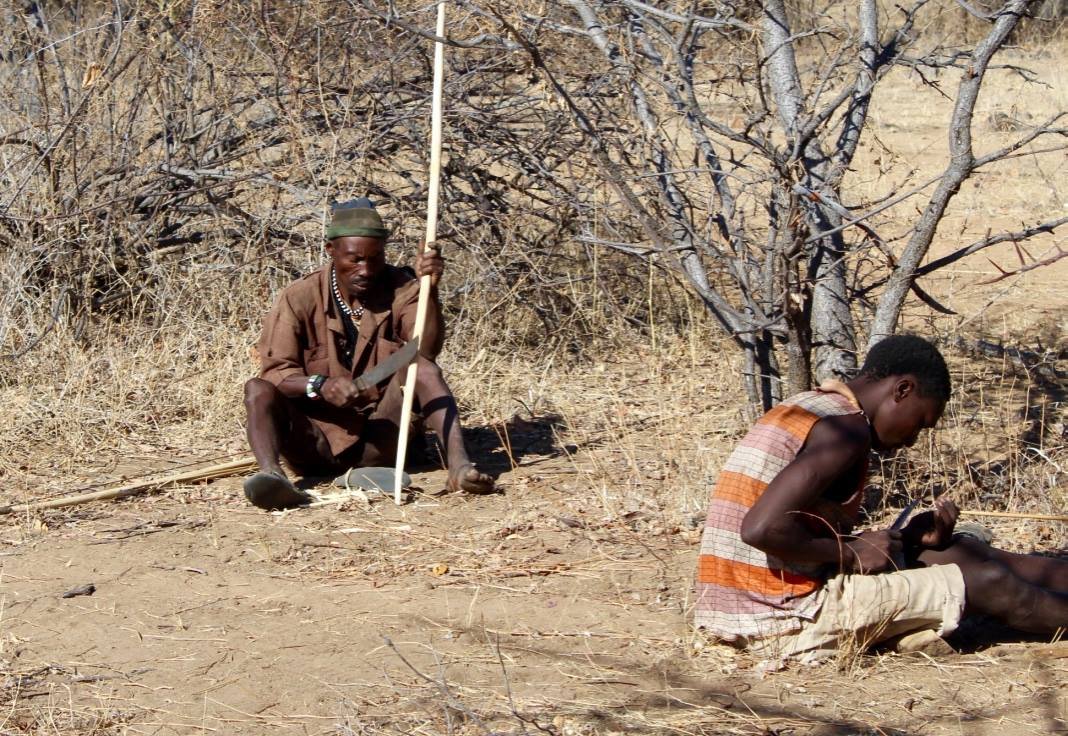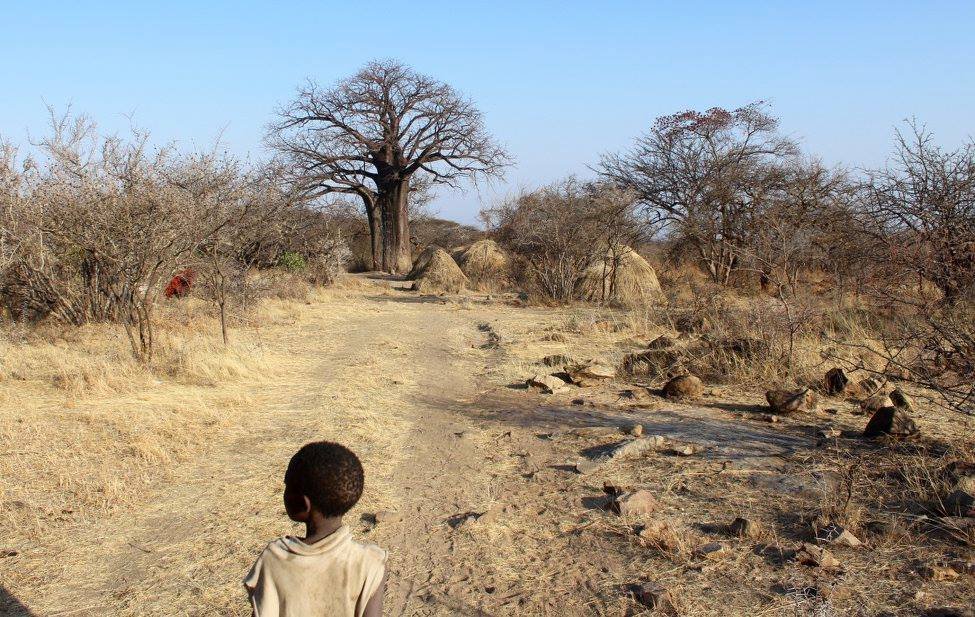
How do Hadza hunter-gatherers cooperate in groups and choose their campmates?
The Hadza are a population of hunter-gatherers living in northwestern Tanzania around Lake Eyasi. Men hunt for meat and collect honey, while women gather plant goods such as tubers and berries. Food brought back to camp, especially meat, is shared widely with everyone in camp. Camps are temporary resident bands, moving location as resources are depleted. Camps are not permanent social units, and people can move between camps freely.
My research addresses two related questions. First, how do Hadza maintain cooperation within camps? Second, how do Hadza choose which campmates to stay with? I find that levels cooperation within camps in likely maintained by social norms and reciprocity and not by cooperators choosing to live with other cooperators. Instead, Hadza are choosing campmates based on their skills as foragers - because sharing is largely determined by norms, it is better to choose campmates who will bring food back in the first place. Recently, these preferences have been reversing as Hadza interact more extensively with neighboring populations, which may be also be changing the ways they think about their social world.
I often collaborate with Coren Apicella in this research.


